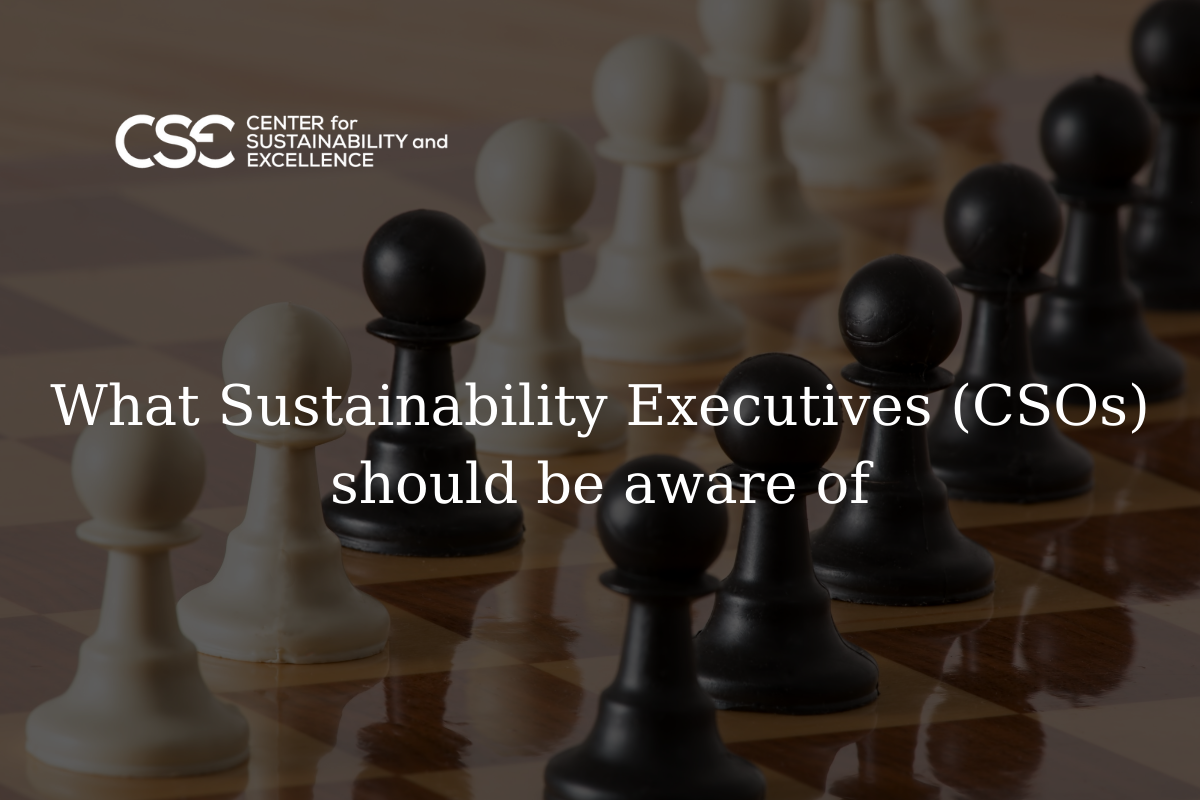What Sustainability Executives (CSOs) should be aware
By Nikos Avlonas, President and Founder of CSE
As the COVID-19 pandemic ran its course in 2020, sustainability concerns tracked along with it.
Pollution – the dramatic decrease in travel within cities led to tremendous improvements in air quality. Social media posted picture after picture of clear skies; cityscapes that spanned miles rather than blocks; mountain tops obscured by haze for decades.
Corporate response – then companies felt the hit. With lower sales, production when down, lays offs abounded. Less pressing concerns, such as sustainability, seemed to take a back seat as SMEs and even major corporations struggled to stay afloat.
Consumerism – then we discovered online everything: groceries, restaurants, clothing, household goods, museums, schools, medicine.
Incendiary news – and social media became our link to the world. Every ugly confrontation between neighbors, every deadly confrontation between individuals and authorities, made it to our phones.
Corporate awakening – companies woke up to the Social issues in ESG (environment, social, governance). Many of them pledged to help struggling small businesses, social welfare, activism, calls to state and federal governments to change policies.
What to does all this portend as we move into a 2021 world where COVID-19 is part of our daily lives for the foreseeable future?
Climate change – companies are planning ahead, finally, taking much longer-term views. For example, Nestle plans to cut carbon emissions in half by 2030.
Corporate response – a recent GlobalData survey suggests that the COVID-19 pandemic has actually increased the priority of sustainability and ethics in global attitudes. Regenerative agriculture, 100% renewable energy, deforestation are being incorporated into business practices.
Minimum wages – major corporations and SMEs are moving to raise minimum wages. The losses of income with no savings and the humiliating reliance on food banks and charities in the US have made corporate leaders question their role in wage strategies preventing people from creating their own life lines.
Distance employment – increased wages for low earners coincide with increased flexibility for high earners. In the US service economy, call centers, lawyers, accountants, publicists can work for companies across town or across country. Professional wages will stall as companies take note that expenses for moving, traveling to work, professional wardrobes, child care, doctors’ visits (thanks to telemedicine) and much more have decreased.
Online for the better and for the worse – virtual lives, in many ways more convenient and less expensive, trade-off to increased fraud, identity theft and isolation. Emergency room nurses aren’t the only ones in short supply. There is an increased need for mental health professionals and cyber security.
Every change we’re experiencing, every forecast for SMEs, major corporations, governments and social enterprises have sustainability ramifications. Individuals who can think and act holistically are in short supply. The action plan, a major component of all sustainability strategy, is increasingly being outsourced – whether emergency preparedness, environmental or sustainability management systems. Those individuals who can pull the pieces together, who know how to ask the right questions of the right stakeholders will be best prepared to lead businesses in the coming year.







